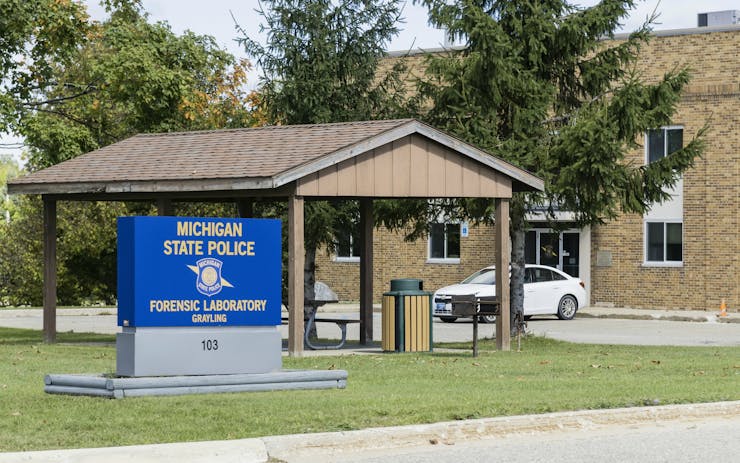Michigan State Police, which came under fire last year for systematically altering evidence to charge medical marijuana patients with felonies, will receive millions more dollars to oversee the state’s medical cannabis system under next year’s state budget.
Of a proposed $33.1 million increase to the department’s budget next year, nearly $8.8 million would go toward hiring 48 full-time employees to assist in medical marijuana licensing oversight, according to a House Fiscal Agency summary of the draft budget.
The new spending is a result of the Medical Marihuana Facilities Licensing Act, which became law in 2016 and imposes several new licensure mandates on growers, retailers, and transporters of cannabis. Enforcement is the responsibility of the State Police.
But the force has a checkered relationship with cannabis patients. As Leafly documented in a special report, officials at the Michigan State Crime Lab in recent years secretly altered evidence to allow prosecutors to charge patients with serious crimes and push plea deals. Workers knowingly mislabeled medical cannabis as synthetic THC, putting more than 180,000 legal patients at risk of felony charges.
Matt Abel, executive director of Michigan NORML, said he wasn’t surprised by the budget increase, given the state’s fledgling cannabis industry. But he expressed regret at the department’s past enforcement priorities.
“We’re moving into licensing a newly regulated business, so it’s expected that we’d need inspectors to insure regulatory compliance,” he said. At the same time, he added, “I’m disappointed about how much law enforcement resources have been used to prosecute medical marijuana patients.”
In 2014, there were 35,762 drug arrests in Michigan. In 2015, there were 36,686. Approximately two-thirds of those arrests were for cannabis, and 85 percent of all cannabis arrests were for simple possession.
Of the 48 planned hires funded by the police-budget increase, 30 are slated to work in investigations, eight in forensic science, seven in commercial vehicle enforcement, and three in intelligence operations, according to a report in Michigan Capitol Confidential, a free-market oriented news blog.
Michigan voters approved the Michigan Medical Marijuana Initiative in 2008, legalizing medicinal cannabis for patients with certain conditions. It also allows caregivers to grow a limited number of plants for patients.





